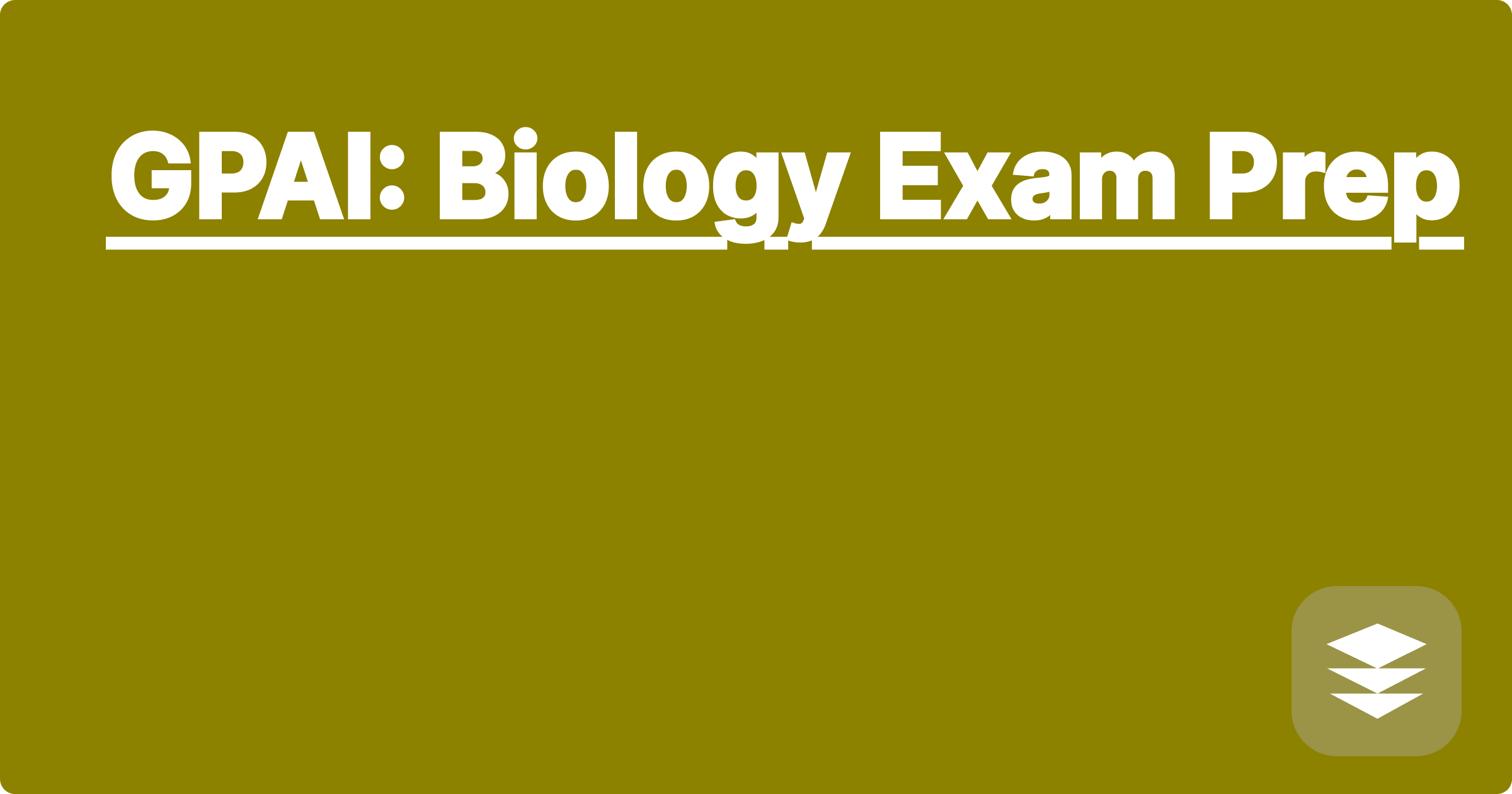
STEM fields, particularly biology, present a significant challenge: the sheer volume of complex information students must master. From intricate biochemical pathways to the diversity of life on Earth, biology demands a deep understanding of interconnected concepts. This complexity can be daunting, making effective study and exam preparation crucial for success. Artificial intelligence (AI) offers a powerful new set of tools to address this challenge, providing innovative ways to learn, understand, and apply biological knowledge.
For STEM students and researchers, especially those preparing for biology exams, leveraging AI can be transformative. Traditional study methods often involve rote memorization and passive reading, which can be inefficient and lead to superficial understanding. AI tools, however, can personalize the learning experience, provide interactive practice, and offer insights that deepen comprehension. This empowers students to move beyond surface-level memorization and develop a true mastery of the subject matter, leading to improved academic performance and a stronger foundation for future research. This blog post will explore how AI can be a valuable ally in preparing for biology exams, offering practical strategies and real-world examples to help you succeed.
Biology exams often assess a wide range of knowledge, from molecular biology and genetics to ecology and evolution. Students are expected to recall specific facts, understand complex processes, and apply their knowledge to novel scenarios. The challenge lies not only in the breadth of the material but also in its interconnected nature. Understanding how different biological concepts relate to each other is essential for success, but this can be difficult to achieve through traditional study methods alone. Furthermore, biology is a constantly evolving field, with new discoveries and updates emerging regularly. Keeping up with the latest advancements can be overwhelming, adding another layer of complexity to exam preparation. Effective study strategies must address these challenges, providing students with the tools and resources they need to navigate the complexities of biology and succeed on their exams.
AI tools like ChatGPT, Claude, and Wolfram Alpha offer a range of capabilities that can revolutionize biology exam preparation. ChatGPT and Claude, for example, can be used to generate practice questions, create personalized study guides, and explain complex concepts in clear, concise language. These AI chatbots can also simulate exam conditions by providing interactive quizzes and offering immediate feedback on answers. Wolfram Alpha, with its computational prowess, can be used to analyze biological data, perform calculations related to biological processes, and visualize complex structures. By integrating these AI tools into your study routine, you can personalize your learning experience, target specific areas of weakness, and gain a deeper understanding of the material.
Begin by identifying the specific topics covered on your biology exam. Next, use an AI chatbot like ChatGPT or Claude to generate practice questions on these topics. You can ask the chatbot to create questions of varying difficulty levels, from simple recall questions to more complex application-based questions. Then, use the chatbot to generate explanations for the correct answers, paying close attention to the underlying concepts and reasoning. If you encounter any formulas or calculations, utilize Wolfram Alpha to practice solving them. You can input the formula and relevant values, and Wolfram Alpha will provide the solution along with step-by-step explanations. For visual learners, Wolfram Alpha can also generate diagrams and visualizations of biological structures and processes, aiding in comprehension and memorization. Finally, use the AI chatbot to create a personalized study guide summarizing the key concepts and formulas for each topic. Review this study guide regularly to reinforce your understanding and prepare for the exam.
Suppose you are studying cellular respiration. You can ask ChatGPT to generate practice questions such as "Explain the role of ATP in cellular respiration" or "Compare and contrast aerobic and anaerobic respiration." ChatGPT can then provide detailed explanations of these processes, highlighting the key differences and similarities. For example, it might explain that ATP serves as the primary energy currency of the cell, while also detailing the steps involved in glycolysis, the Krebs cycle, and the electron transport chain. If you encounter the formula for calculating ATP yield, you can use Wolfram Alpha to practice applying it. For instance, if you input "Calculate ATP yield from 1 molecule of glucose in aerobic respiration," Wolfram Alpha will provide the answer along with the calculations involved. Furthermore, you could ask Wolfram Alpha to visualize the structure of a mitochondrion, the site of cellular respiration, providing a visual aid to enhance your understanding.
To maximize the benefits of AI in your biology studies, focus on active learning. Don't just passively consume the information provided by the AI tools. Instead, engage with the material by asking questions, challenging assumptions, and seeking clarification. Use the AI chatbots to explore different perspectives on complex concepts and to delve deeper into areas where you struggle. Another important tip is to integrate AI tools into your existing study routine. Don't rely solely on AI for exam preparation. Combine AI-powered learning with traditional study methods like reading textbooks and attending lectures to create a comprehensive and effective study plan. Finally, remember that AI is a tool, not a replacement for hard work and dedication. While AI can significantly enhance your learning experience, it is essential to maintain a consistent study schedule and put in the effort required to master the material.
To effectively prepare for your biology exams using AI, start by exploring the various AI tools available and experimenting with different approaches. Identify the specific areas where you need the most support and tailor your AI usage accordingly. Remember to actively engage with the material and integrate AI into your overall study strategy. By combining the power of AI with your own hard work and dedication, you can unlock your full potential and achieve academic success in biology.